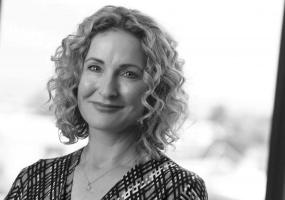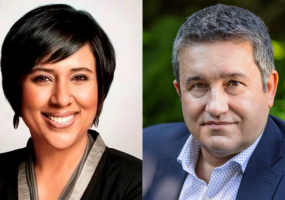How Old Media are using New Media
13 Jul 2011
Andrew Lee Butters writes:
When Myra MacDonald was a Reuters correspondent in India way back in the 20th century, she remembers waking up each day scanning the morning papers, and then perhaps meeting up with colleagues and sources to catch up on the latest news and buzz. "When I started we didn't even have mobile phones," she said. But now that she's based in London as a Reuters editor, she has seen how Twitter and other forms social media have replaced some of those old routines among her colleagues posted abroad. "The old foreign correspondent reads the local papers and goes down to the foreign press club," MacDonald told the seminar. "All that's gone," MacDonald said. "Twitter is the modern-day equivalent." News monitoring and keeping up with colleagues are just some of the many ways in which social media platforms such as Facebook, Linked In, and especially Twitter are changing journalism. There is some inevitable future-shock at the pace of change among news organizations, and indeed reluctance to accept that some of the traditional functions of the news media – such as breaking news, or indeed, even defining the news agenda on any given day – have been eroded if not made obsolete by Twitter. But there is also gradual recognition among editors and managers such as MacDonald that social media can also free up journalists to do what they do best: original reporting and storytelling. "Once you get past the self-defensive mechanism that most of us have, it's a great time-saver," she said. And besides, "if we don't figure out how to adapt, we are going to be out of a job." MacDonald notes that Twitter came into its own as both a news source and as a resource for journalists looking for expert commentary in January during the popular uprisings in the Arab world. Egypt, in particular, had a relatively large community of well-known local bloggers and civil society activists who used Facebook and Twitter to organize protests (when Egypt’s Internet was working.) Furthermore, Cairo is also home to internationally recognized Middle East analysts - such as academics from the American University of Cairo – who took their thoughts online during the protests. So because these bloggers and Twitters were relatively known quantities, Western media organizations were much more comfortable using them as sources then they had been with social media users in Iran during that country's Green Movement uprisings of 2009. The Twitter frenzy presaging the White House's announcement that Osama Bin Laden had been killed by U.S. troops in April also highlighted the way in which the power of political leaders and mainstream media to shape how a news story unfolds has become decentralized by social media users. MacDonald has drawn a few lessons from using Twitter to cover these news events, one of the most important of which is to choose one's battles. Journalists should stop thinking that they are the sole intermediary between newsreaders and popular and expert opinion, much of which is now available online. Quick news stories can gather up and highlight opinions and information being expressed on social media, and reliable sources can even be quoted from what they Tweet, as long the platform is mentioned in the quote. Twitter can also provide a powerful antidote to spin. With their smart-phones, journalists attending press conference can monitor the feeds of experts tweeting instant commentary, which they can then reference in their questions and breaking stories to catch errors and misinformation. Twittering does have its limitations for journalists, of course. While individual correspondents are being encouraged by their companies to tweet in their own names but under the corporate brand, they can find themselves in hot water for veering into personal opinions, especially if they are controversial. And news companies will also still want to break news within their own proprietary platforms, rather than in social media. MacDonald says she is very cautious never to be pass on unverified information under the Reuters brand, and that most of what she does on Twitter is purely monitoring. Even that can be daunting. "There are so many leads on twitter you can start driving yourself mad by following all of them," she said. And with major events or in depth stories, there is no substitute for having a reporter on the ground. Purely monitoring the Twitter feeds of Egyptian revolutionaries would have given news organizations the impression that the uprising was of a much more secular, middle class, and Western orientation than the actual composition of the crowds gathering in Tahrir Square actually were, according to Macdonald. "Twitter needs to be treated like any other source of information, with a degree of skepticism," she said. "There is no such thing as absolute truth. You have to make judgments, and even your best judgment isn't going to be completely correct. It's always your best guess."




